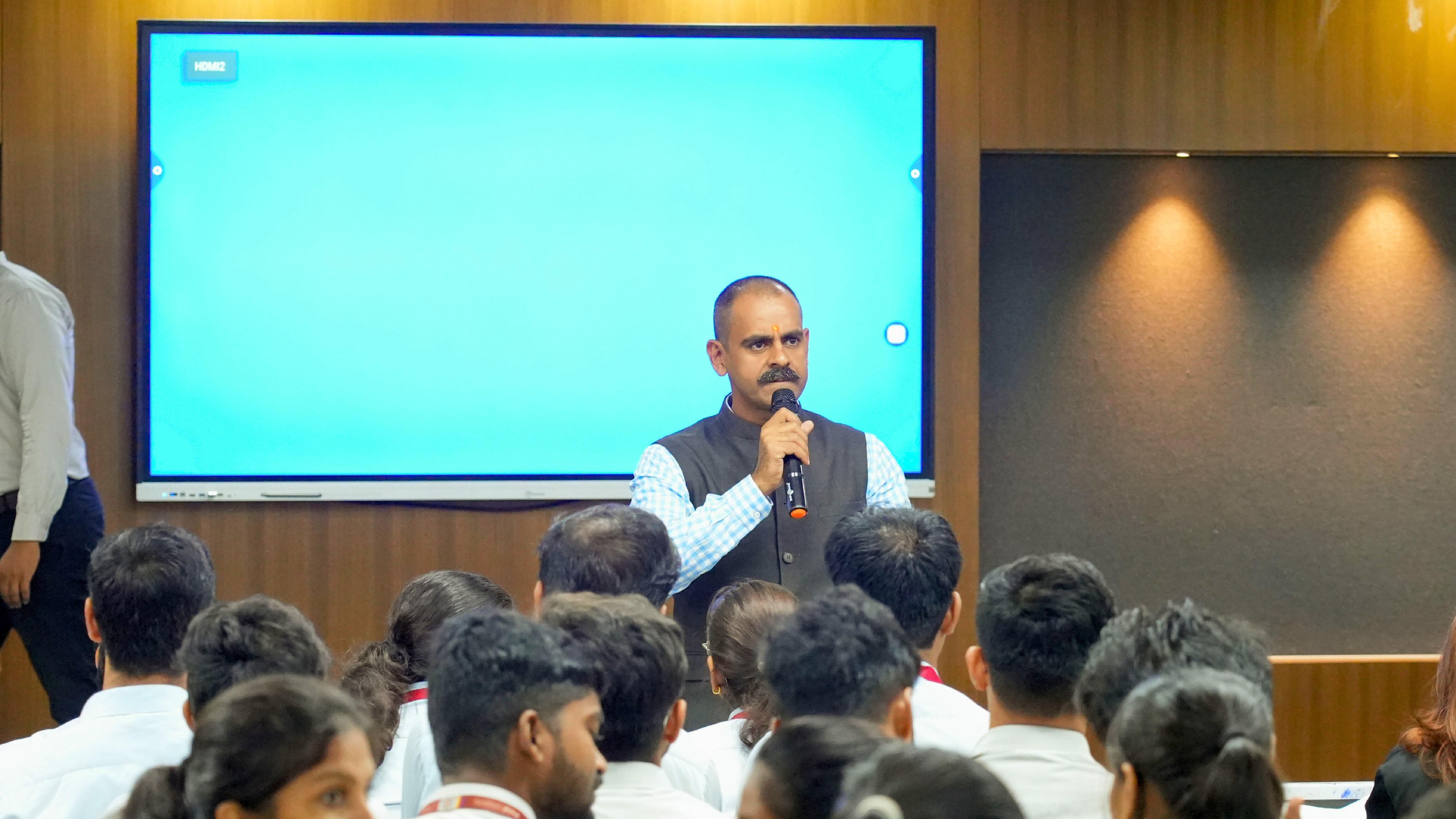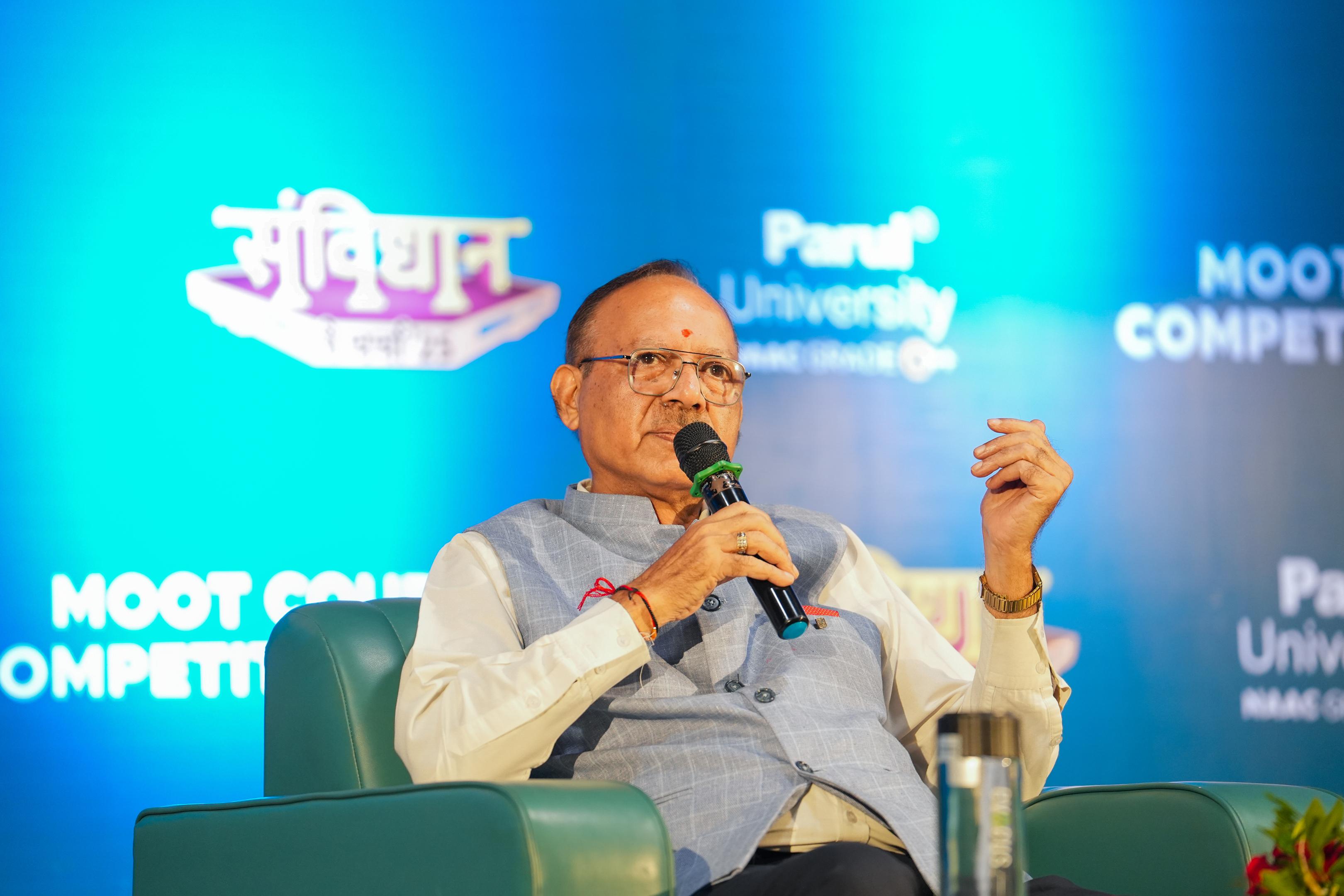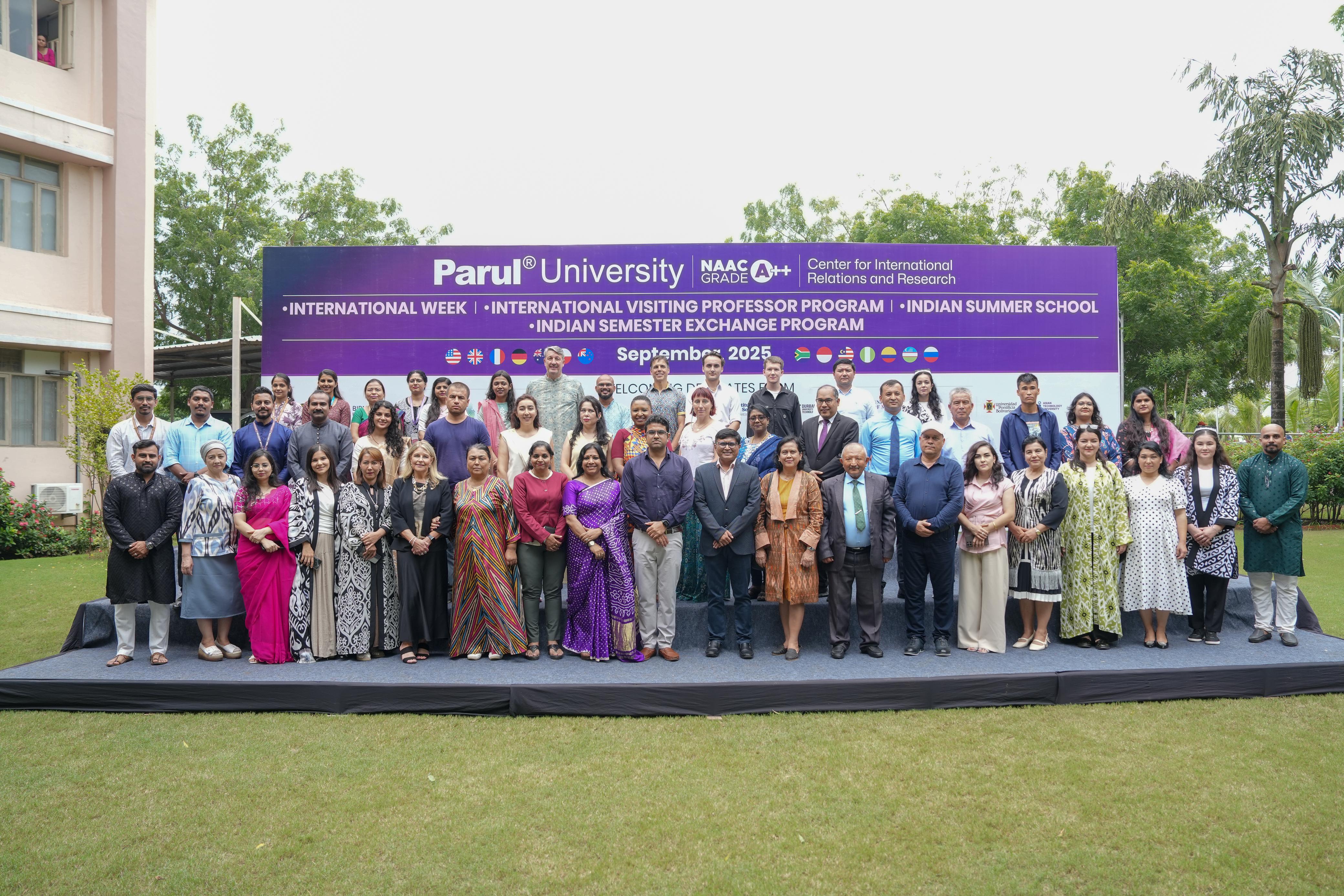At Parul University, students recently experienced more than just a guest lecture, they were taken on a rollercoaster of stories, grit, and wisdom by Dr. Lobsang Sangay, former Prime Minister of Tibet and Harvard Law graduate. His session on value-based leadership wasn’t theory pulled from books, but lived experience, an account of how a boy from a tiny farming town grew into a global statesman.
From Scarcity to Sharpness
Dr. Sangay painted a vivid picture of his humble beginnings. They had only an acre of land, and even the plot where their cows grazed lacked grass. Food was routine, always daal bhaat, but his personality was far from dull. Smiling roguishly, he remembered how he fooled his siblings into eating first so he could have the finest share remaining at the end. It was a fun story, but it taught a lesson: in the midst of dearth, he was able to locate opportunity.
Choosing the Hardest Road
The foundation of his journey rests on one principle: “Whatever is the hardest thing to do, I will do that.”
He first tested this belief in school. Students were split into advanced English, mediocre English, and no English sections. Teachers told him he wasn’t cut out for the top section. But instead of settling, he memorized not just four lines of a poem as challenged, but the entire piece. When he recited it flawlessly, the same teachers had no choice but to place him in the advanced group. That small victory became a lifelong reminder: persistence pays off.
Rejection, Protest, and a New Direction
His dream of studying Political Science at Delhi University was blocked by limited Tibetan quotas. Disappointed but not defeated, he joined Hansraj College in English Literature. While peers buried themselves in academics, he threw himself into student protests and rallies for Tibetan rights. Attendance suffered, but his pride in raising his people’s voice did not.
A Master’s in Law followed, and here another turning point awaited him. He noticed one student who seemed to have everyone’s admiration. Curious, he asked why. The answer: the student was preparing for Harvard. For most, that was intimidating. For Sangay, it was fuel. “What’s the big deal? I’ll try too,” he declared. His first application was rejected. The second? Accepted by eight out of nine universities, including Harvard Law.
Finding His Voice at Harvard
Harvard wasn’t an easy ride. The PhD program admitted only five to six students annually. Sangay earned his spot through sharp communication skills. While others churned out hundreds of pages of research, his concise five-page paper cut straight to the heart of the matter and still won Best Research Paper.
It was here that he began to understand leadership in deeper terms. As he told the audience, “It’s easy to remove dictators, but hard to place the right leaders on top.” Leadership, he emphasized, isn’t about tearing down; it’s about building with integrity.
From Scholar to Statesman
In spite of skepticism, even his own mother at one point joked that she would not vote for him, Sangay ventured into politics and became the Prime Minister of Tibet. One of his accomplishments stood out: securing recognition for Tibetans in the U.S. Senate, a feat once believed impossible.
But aside from politics, his values rang out. “You are never overdressed at an event,” he reminded the audience, “you honor others by respecting their dignity.” Leadership, for him, was never about ego; it was about respect.
A Message for the New Generation
Dr. Sangay’s journey proves that leadership isn’t reserved for the privileged. It belongs to those willing to take on the toughest paths, guided by values instead of convenience. From a field too barren to feed cattle to the halls of Harvard, from rejection slips to the Prime Minister’s office, his life carries one clear lesson: conviction and values are the real power.
For today’s youth, it was more than an inspiring talk; it was a challenge. A challenge to choose the harder road, to lead with dignity, and to carry forward the essence of value-based leadership into every step of life.

.jpg)


.jpg)


